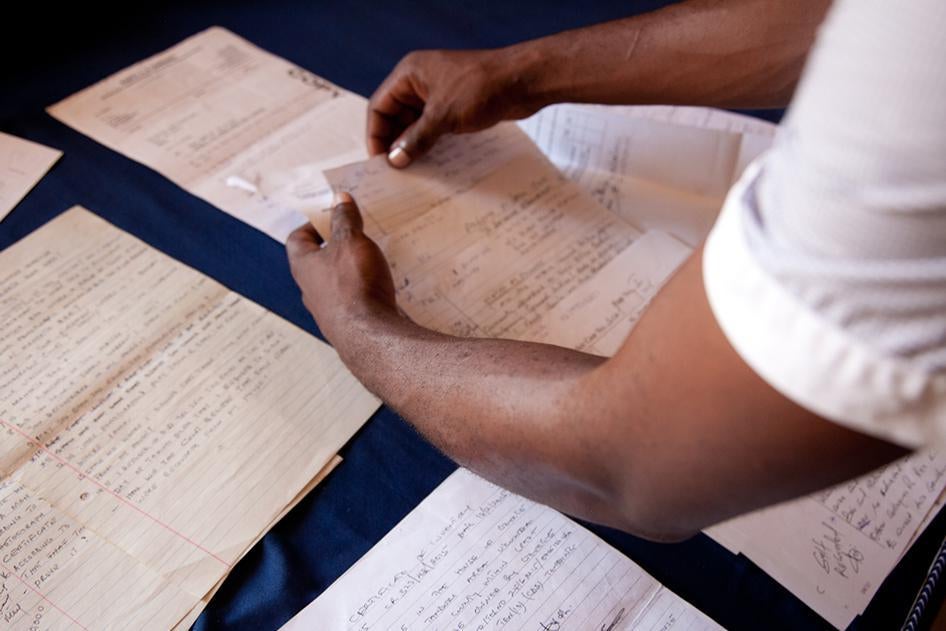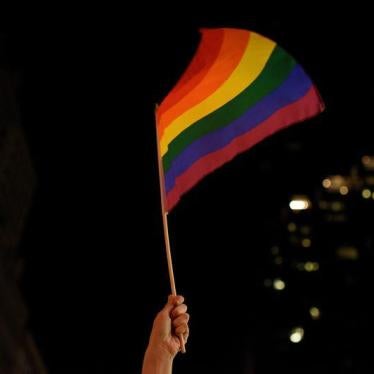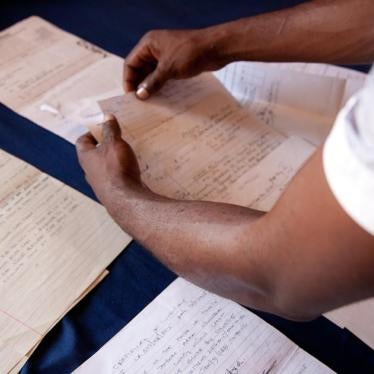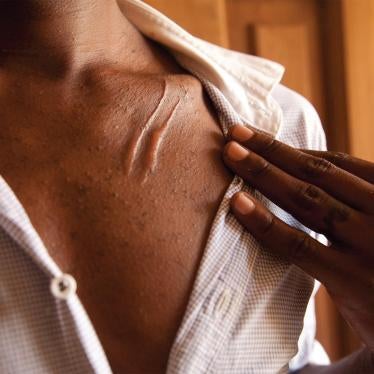Kenya’s High Court on Friday postponed a much-awaited decision on a colonial-era law that has long deprived one group of Kenyans of uhuru, or freedom, promising to revisit the issue in May. Criminalization of gay sex remains on the books.
Disappointment reigned among Kenya’s LGBT communities and the human rights advocates who have supported their crusade for equality. The petition challenging the constitutionality of Kenya’s anti-homosexuality laws was filed in 2016, but activists have been planning for this moment for a decade. They built up to it by documenting human rights violations against LGBT Kenyans; galvanizing public debate; conducting targeted outreach to groups including the police, the media, and religious leaders; and filing other constitutional challenges on LGBT-related issues to develop precedent.
Their work may yet pay off. But the moment of relief has yet to come. Kenya’s High Court was asked to find sections 162 and 165 of the penal code, which punish “carnal knowledge of any person against the order of nature” and “indecent practices between males” with 14 years and five years in prison, respectively, to violate constitutional rights to equality, nondiscrimination, human dignity, security, privacy, and health.
The judges said they had been unable to finish working through the many pages of submissions from both sides, with one judge, Chacha Mwita, telling the packed-to-the-brim courtroom, “The files are above my height. … We are still working.”
The delay may indeed be a consequence of Kenya’s backlogged court system and not a personal attack on LGBT people, but whatever the reason, withholding judgment means that long-standing human rights abuses that affect real lives on a daily basis will persist. In practice, the unnatural offenses laws have rarely been enforced in recent history. But they institutionalize discrimination and have most likely contributed to violence. When my colleagues at Human Rights Watch and I interviewed LGBT people in Kenya’s coastal region who had been victims of hate crimes, several said police responses were inadequate or stigmatizing. Others refrained from reporting crimes to the police altogether, fearing that they would be viewed as criminals, not victims.
Other rights groups have documented cases of discrimination in housing, education, and employment linked to the laws. When Kenya’s film censors last year banned the award-winning film Rafiki, a touching lesbian love story, they asserted the law was on their side. In one of the few known cases of prosecution under section 162, police resorted to the horrifying, antiquated practice of forced anal examinations to try to find evidence of same-sex conduct by two men who’d been picked up on the basis of a rumor.
Last year, in a case filed by the National Gay and Lesbian Human Rights Commission, a Kenyan appellate court ruled that the use of forced anal exams violated prohibitions against torture. Like the 2015 High Court ruling compelling the government to register the commission as a nongovernmental organization after its refusal to do so, the anal exams ruling nourished hopes among LGBT activists.
The obstacles to change are significant. In 2018, President Uhuru Kenyatta publicly stated that Kenya had not yet “reached a stage” at which its people were ready to discuss decriminalization of homosexual acts.
Nevertheless, global developments have been encouraging. It had been 20 years since a court ruling on the African continent had found laws against same-sex conduct unconstitutional—the last and only other case being that of South Africa in 1998. But courts in other former British colonies, including Belize, Trinidad and Tobago, and India, have struck down sodomy laws in recent years. Legal challenges to such laws are also pending in Botswana, Malawi, Jamaica, and Singapore. Further, since 2012, Lesotho, São Tomé and Príncipe, Mozambique, Seychelles, and Angola have all quietly repealed such laws, along with other states including Nauru, Palau, and Northern Cyprus.
For the Kenyan petitioners—the Gay and Lesbian Coalition of Kenya, the National Gay and Lesbian Human Rights Commission, and the Nyanza, Rift Valley, and Western Kenya Network, along with several individuals—India’s ruling decriminalizing same-sex conduct last September stood out as a particularly significant precedent. Kenya’s penal code was essentially a copy-and-paste job by British colonizers who’d first imposed unnatural offenses laws on their erstwhile Indian subjects and then imported the Indian penal code to other parts of the British Empire.
The Kenyan activists seized on the India ruling, introducing it into evidence in their own constitutional challenge. “[H]omosexuality is a completely natural condition, part of a range of human sexuality,” the Indian Supreme Court found. Moreover, it said, “Our ability to survive as a free society will depend upon whether constitutional values can prevail over the impulses of the time,” such as “dogmatic social norms” and “bigoted perceptions.” Kenya’s courts have previously made use of international precedent on LGBT rights: In the 2015 ruling on the gay and lesbian commission’s registration, the court, in finding that sexual orientation cannot justify discrimination, cited the 1998 South African ruling that decriminalized same-sex conduct.








